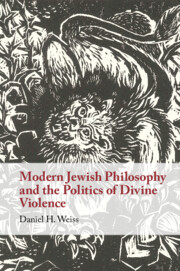The place of interfaith dialogue in Orthodox Judaism has been the subject of extensive discussion. This article offers a reading of Rabbi Joseph Soloveitchik's and Rabbi Irving Greenberg's stances on interfaith dialogue that situates them in a Jewish philosophical context. Some scholars have argued that Soloveitchik's refusal to engage in Jewish-Christian theological dialogue must be understood historically; others have argued that his opposition to such dialogue must be understood halakhically. This article, building upon the view articulated by Daniel Rynhold in his 2003 article that Soloveitchik's stance on interfaith dialogue must be understood philosophically, posits that in order for Soloveitchik's stance on interfaith dialogue to be fully understood, it should be studied bearing in mind the influence of Hermann Cohen upon Soloveitchik's religious philosophy. This article, which demonstrates the direct influence of Franz Rosenzweig upon aspects of Greenberg's thought, further argues that in order for Greenberg's stance on interfaith dialogue—as well as his interfaith theology—to be completely grasped, his positions upon these theological matters must be studied with the awareness of Franz Rosenzweig's influence upon his thought. The reading offered in this article of Cohen and Soloveitchik and of Rosenzweig and Greenberg does not purport to minimize the irreconcilable differences between these thinkers; nonetheless, it believes that the substantial resemblances—and, in the case of Rosenzweig and Greenberg, the direct influence—between the views of Christianity held by these pairs of figures are significant and suggest a reconsideration of the role of philosophy in the story of American Jewish theology.
